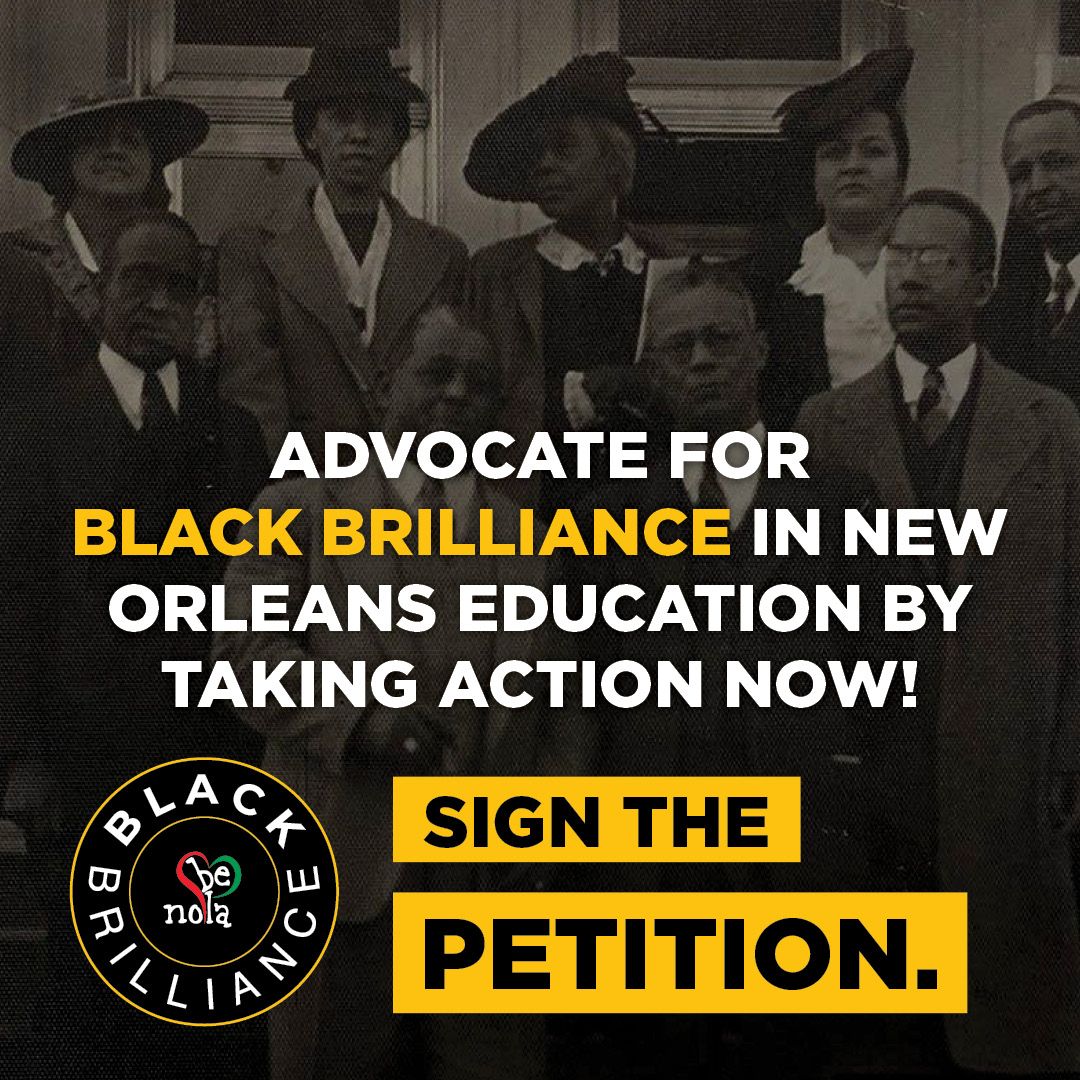
HB564 Has to Go
Teaching about racism, sexism, and bias is a critical component of culturally-relevant pedagogy and high-quality teaching and learning for all.
THIS WEEK BE NOLA SIGNED ONTO A STATEMENT with key education stakeholders in New Orleans strongly opposing House Bill 564, which prohibits teaching of what state legislators deem “divisive” concepts like racism and sexism in Louisiana schools. The bill is fashioned after the now rescinded Executive Order on Combating Race and Sex Stereotyping issued by Donald Trump in September 2020 to prohibit the teaching of “divisive concepts” in Federal Contractor trainings. Trump’s Executive Order was a type of whitelash to Nikole Hannah Jones’s award-winning 1619 Project which adopted a critical race theory approach to posit the impact of slavery and contributions of Black Americans as central and foundational to America’s history. While President Biden has since nullified the order, elected officials from 8 states (Idaho, Iowa, Louisiana, Missouri, New Hampshire, Oklahoma, Rhode Island, and West Virginia) have filed similar bills as a test case to make it harder for teachers to talk about racism, sexism, and bias.
Louisiana’s Rebublican State Representative Raymond E. Garofolo is the author of HB564. Our organization along with New Orleans Public Schools (NOLA-PS), 36 charter school organizations, and seven nonprofit organizations issued a statement strongly opposing this bill. While the coalition’s statement makes much of the bill’s encroachment on charter school autonomy in selecting curricula and providing teacher training, that is not our primary concern. Rather, we oppose this bill on the basis that a quality education system and educator for Louisiana’s children must understand the historic and present-day impacts of racism and sexism and be equipped to teach about them.
In 1841, New Orleans public schools were officially recognized by city and state government institutions. By 1900, the Orleans Parish School Board voted to limit public education for Black students to grades 1 through 5 and followed that with a policy to only hire white teachers at any new school in 1911. In 1918, the Louisiana Department of Education authorized a special curriculum exclusively for Blacks, indicating that it will teach Black students how to perform duties “the world wants done” in opposition to white community complaints about expanding public school options to Black. Louisiana declared the NAACP illegal and passed a law to dismiss any public school teacher who promoted integration in 1956. By 1957, New Orleans voters rejected tax increases to support public schools from 1967-1980, resulting in 13 years of stagnant local revenues to supplement state funding for Orleans public schools. Race has fundamentally shaped the trajectory of public education in New Orleans and to erase the impact that racist and sexist policy and practices have played in the marginalization, underfunding, and under-supporting of Black education, educators, students, families, and communities in this state is irresponsible and egregious.
Today, more than half of all students attending public elementary or secondary schools across Louisiana identify as BIPOC, 42% are Black, 48% are female, and almost three-fourth come from economically disenfranchised communities. In New Orleans, almost 90% of students and their families live at or below the poverty line, 80% are Black and 92% identify as BIPOC. Black educators makeup 53% of the teacher workforce in New Orleans. While rejection of HB564 is a must, it is only one small effort absent a comprehensive set of actions necessary to acknowledge and repair the legacy of systemic white supremacy in school funding, curriculum, teacher recruitment and retention, facilities, and school governance. BE NOLA’s mission is to bring resources and support to Black educators and Black-led schools. Today, as we stand in the ongoing legacy of Black educators and civic leaders, we say that the time for educational reparations and equity is now and we hope that your voices will ring alongside ours by:
-
Reviewing, learning more, advocating for, and signing on to support our Black Brilliance Institute Petition to support the development of quality Black educators and education visionaries for New Orleans.
- Follow closely and hold accountable the work of the Louisiana Department of Education’s Social Studies Content Standards Review Committee and workgroups (see members here) to ensure state standards are grounded in critical race theory, equity-based practices, and accurately reflects Louisiana and American history and promote racial equity and justice.
Black educational excellence in New Orleans is rooted in an ethos of deep care, cultural competency, and commitment to ensuring that children are educated with the narratives, values, and vision of their community at the center. Racism, sexism, and bias teaching are critical components of culturally-relevant pedagogy and high-quality teaching and learning for all.
Click here to learn more about BE NOLA and our efforts to build capacity and support for quality Black educators and schools in New Orleans.
Adrinda Kelly serves as executive director of BE NOLA (Black Education For New Orleans), an organization whose mission is to support black educators and black-led schools to provide a quality education to New Orleans children.
